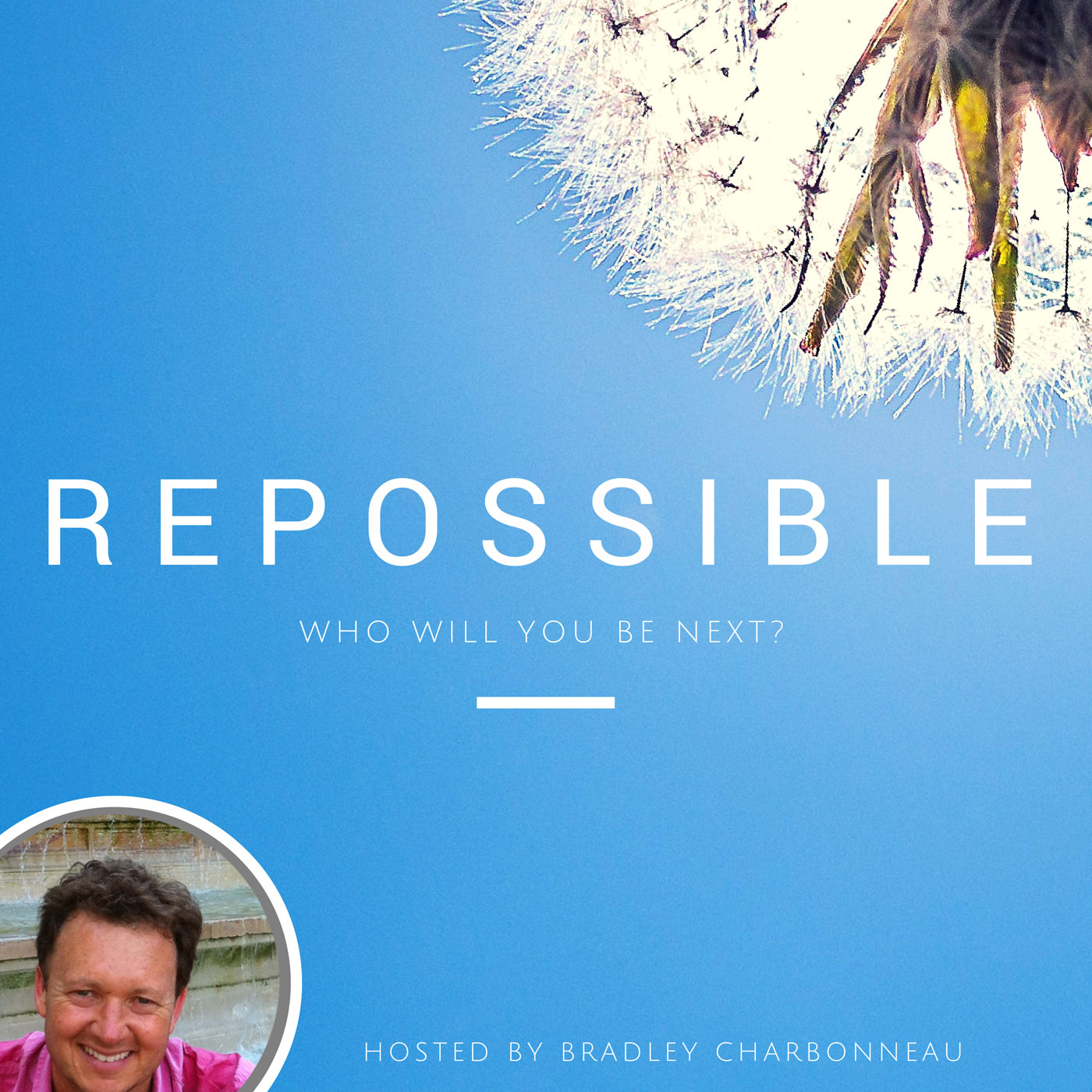Episode Transcript
[00:00:01] Hey, Bradley Schwabner here at Thursday Thunder Repossible podcast. Today we're doing a recap of the very first one retreat, the one day, one word, one book. Get your book one week later, your hardcover book in one day. Get clarity for the coming year. And get some confidence as well because you have that clarity. This is Bradley Sharbin, a repossible podcast and YouTube channel. I think I mentioned that. And today I want to give a short recap under ten minutes of the first one retreat. So here we go. It was a smashing success, if I do say so myself. The comments I got, feedback I got were stuff like, I wish it could have gone on. I wish it didn't end. I wish we could have done two days. In fact, that was a valid comment that I will take into consideration about making it longer. It was. We got a lot done in one day, and I think, frankly, two days would have been better. Or maybe some more prep work in advance. So what happened?
[00:01:07] We had every participant who was there in one day started and finished their one word book. Now, if you'll remember, if you've read the book or you've read the audiobook, or listen to the audiobook or watch any of my programs, I'll just do a quick recap of what the elements are of this one word book. But the goal is really to find your word for the year very much a one word mantra for the coming year.
[00:01:36] And I'm just going to go through quickly the elements in a title, subtitle, epigraph, which is a quote. We've got the acknowledge, not acknowledgements, dedication.
[00:01:47] Then we have the preface. I'll get into all these a little bit more in a minute here. But then we have the one word, like the actual chapter, the one word. And then we have the appy log.
[00:01:57] Then we get some interesting stuff. Then we have acknowledgments who you'd like to thank. And then we have about the author, as well as also by the author. And finally we have the COVID and the book description or blurb or like sales pitch. So we did that all in one day. And I do some elements. What we did was we did some elements in a backwards fashion, which was conscious.
[00:02:26] For example, we'll work on the COVID early. We'll work on the title early. What I really like to work on also early is the book description, which is sort of like the sales page, why someone should buy this book. And remember, the goal of this book is not to sell it. This book is not for public consumption, not for public distribution. This book is for you. You are creating this book for yourself for your coming year. And that's what happened. So everybody in the group, we had laptops on tables, we had designing of covers, we had titles, we had subtitles, we had book descriptions. And then my, one of my favorite parts, and we were running out of time a little bit on this, but one of my favorite parts is the forward. Traditionally, a foreword is written by someone else, so it's not you with some commentary or whatever. That's for you in the preface and the epilogue. But the foreword is written by someone else. So what we did was we swapped books just like went kind of left to right. Like I give you your, I give you my book and I take the book from the person to the right of me. And remember, these are really short books, right? I mean, the preface is maybe a, maybe a page, maybe a few. One word. Book is one word, chapter is clearly one word. And then we have the epilogue, which is the important part, and you hand it over and then your neighbor reads it and writes a foreword for you. Now, the forward is also introducing the topic, introducing the author, and that's exactly what it does. Now, over the course of a day, we get to know each other a little bit. And in reading this book, you're going to get a sense or feeling what this book's about. And you're going to then, in a very brave, confident manner, you are going to then write a very compelling, it's almost sales pitchy, right? You're saying, hey, this book by, you know, Jonathan Summers here, what, you know, is a fantastic read and you're going to love it because, and I know this because I was talking with him today and blah, blah, blah. Right? So that's a really interesting element that you take someone else's opinion about the work you just did. Now, another comment I got, speaking of the forward, was we had time limits. I mean, we did this all in one day, right? And so this forward we did in, you know, 1015 minutes. So you had to read the book, which is short, and then just had time for just a couple paragraphs, right? That was it. And people said that the time limits really helped them to get through because if you know, sort of that, what is that rule? You know, you fill the time to fill the amount of time to fill the amount of time allotted or whatever that quote is. And that's what happened here, because we had ten or 15 minutes. We took ten or 15 minutes, right. If we had had 2 hours, we would have taken 2 hours to do it. Similarly, on that note, the. Some people called it a pressure cooker, which. Which I. They were saying in a positive light. But the pressure cooker of the day and the time limits. Like, for example, for the book cover. I mean, the book cover, it's a tough one. I mean, that's one. I mean, I talk often during the day about how some of these elements can take. Can take us ten minutes or 10 hours. And I really want to go for the ten minute one. Right. Because we had a couple of us who are really tweaking the covers, and I get it.
[00:05:49] But we were, you know, going over time on the covers, and we needed to move on, so we did. So we move, hey, you're done, or you're done enough. Let's move on.
[00:05:57] We had some big breakthroughs on the words. The actual one word. One comment I did get a couple times was the idea of we didn't spend enough time on creating or discovering or uncovering, as I like to call it, the one word. And this is sort of comes from my assumption that we all have our one word already, which I stand by. I believe that we all have our word for the year, and we're just sort of dusting it off or uncovering it, sort of like an archaeologist is with the. With the paintbrush thing, uncovering the bones. They're already there, so we already have our word. However, some of the feedback was we could have spent some more time on talking about the word or talking through the word, even if you have it. Great, let's have it. But then let's talk about it a bit. So that was good feedback. So we'll do more of that probably in the preparation up to the day, and then also get started in the morning with more of that.
[00:06:55] We did a lot of technical stuff, and, of course, I'm right there to help you through it. And, you know, some people are more technical than others, and we got some little snags and things where, oh, how do I open this account? Or how do I upload this thing or whatever? But we got through it. And actually, I have to say, shout out to the participants, because they just were helping left the right. If this guy's better at, you know, uploading a photo or figuring out this file thing than he'd help his neighbor, and that would just be fantastic. So that was really cool. And remember, this isn't, you know, we're not in a 200 seat hall where I'm just lecturing. This is a major hands on, interactive session where, sure, I am teaching the class, so to speak. But then we are doing right. We are heads down and doing. And if you got any, if you have any problems in this, ask me or ask your neighbor and we'll get them done right. So that's what we were doing and we were getting done. And we knew we had time limits and it was, it was fun. We also had time for a walk outside. We had lunch. We took a walk in the nearby sort of woods, sort of a golf course woods and location is just beautiful. It's a great place. And this is where we'll be again. One more time. If you'd like to know more, check out below and I'll talk about future events. But I gotta say, the main thing people said was the fact that it was in person and that's what helped them get it done. I've had several people in the program online, do it yourself program, say like, yeah, I've been working on it for a while, but I'm not finishing, I'm not wrapping it up. And part of that is that accountability aspect of being there together, the same room and everybody's getting it done, and then so will you. Right? Because, because of the time limits and because of the people around, we're just going to get it done. So guess what? We all got it done.
[00:08:47] We even managed to. I just, at the end, I figured out sort of a better way to make a paperback or hard book cover.
[00:08:56] And this is, if you know anything about publishing paperback and hardback covers, they're tricky. It is not easy. And I have found a new tool that I really enjoy that really helps make it easier. So not really easy, but it's easier for sure. And we got that done. So within a week or so, every one of the students is going to order the book and have a book in their hands. And that's the part most of everybody was really excited about, to get that thing in their hands. And then speaking of accountability, I've heard that as well, that this is going to be an accountability partner for you. Your book, like my book focus, it's really helped solidify my word, make it stronger for me, make it more powerful, and make it really my word of the year. And I reach out to my book, and just seeing my book, seeing that I have the focus, helped me focus. That's it. That's a recap of the one retreat. If you want some, you want to get in, check out information below and I'll see you there. Bye for now.


